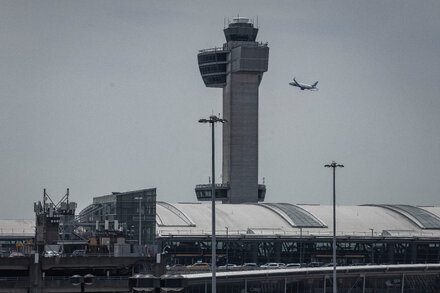While a looming government shutdown isn’t expected to immediately halt commercial flights, aviation experts warn that prolonged disruption could severely degrade air travel services. Essential personnel will continue working without pay, but the cumulative stress and broader impact on FAA functions raise concerns about long-term safety and efficiency.

A looming government shutdown, anticipated to commence on October 1st, is not expected to immediately ground commercial flights across the United States. Essential personnel, including air traffic controllers and Transportation Security Administration (TSA) officers, are generally designated as critical and required to continue working without pay. This measure aims to ensure the continuity of vital air safety and security operations.
However, aviation industry experts and union representatives warn that a prolonged shutdown could significantly degrade air travel services, potentially leading to increased delays, staffing shortages, and long-term safety concerns. While the immediate impact on flight schedules might be minimal, the cumulative stress on an already stretched system is a growing apprehension.
Essential Personnel Under Strain
The Federal Aviation Administration (FAA) and TSA largely rely on essential employees who would be mandated to work without compensation. This situation, though legally required, often leads to severe morale issues and financial hardship for workers. Past shutdowns have seen an increase in sick calls, which, if widespread, could lead to airport bottlenecks and flight cancellations, especially during peak travel periods.
“While our dedicated professionals will continue to report for duty to ensure the safety and security of the flying public, asking them to do so without pay is unsustainable and deeply unfair,” said an anonymous spokesperson for a major aviation union. “A prolonged shutdown risks burnout, demoralization, and could ultimately compromise the efficiency and reliability of our nation’s air travel system.”
Broader FAA Functions and Economic Impact
Beyond day-to-day operations, the FAA’s broader functions are also impacted. Non-essential personnel involved in certification, training, research and development, and infrastructure projects would be furloughed. This includes critical work on modernizing air traffic control systems, developing new safety protocols, and conducting routine inspections that ensure aircraft and airline compliance. Delays in these areas could have ripple effects on future operational capacity and safety standards, potentially taking months or even years to recover from a prolonged cessation.
A sustained disruption to air travel, even if not a complete halt, could have substantial economic consequences. Airlines could face reduced passenger demand, increased operational costs due to delays, and potential revenue losses. Travelers would experience longer wait times, increased uncertainty, and potentially fewer flight options, further exacerbating the impact on business and leisure travel across the country.
As the prospect of a government shutdown looms, the aviation sector braces for a challenging period. While immediate disruptions to flight operations are not anticipated, the potential for significant long-term damage to the nation’s air travel infrastructure and workforce remains a pressing concern, urging a swift resolution to prevent escalating issues.
Source: Read the original article here.




